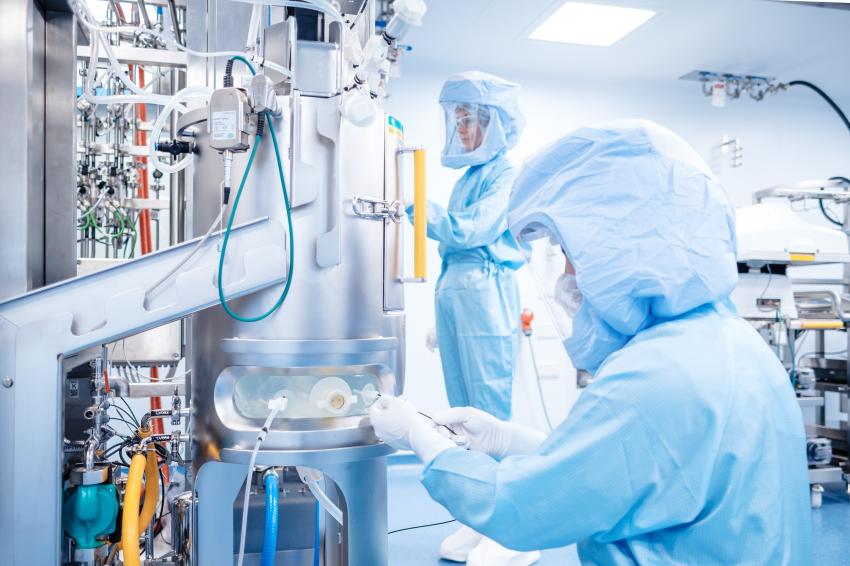Six Firms to Make Vaccines for German Emergency Supply
Six companies announced this week that they have been selected for the scheme. In addition to the now-mRNA giant BioNTech, companies participating include the team of German chemical producer Wacker with compatriot drugmaker CordenPharma and the German-British partnership of CureVac and GlaxoSmithKline, along with, separately, Germany’s IDT Biologika and Swiss-German biotech Celonic.
The contracts were negotiated on behalf of the German ministry of health. Further administration and management will be undertaken at the Center for Pandemic Vaccines and Therapeutics at the Paul-Ehrlich-Institut (ZEPAI), for which this ministry will have responsibility.
Under the agreements, Berlin will have access rights to the companies' production capacities if the coronavirus pandemic persists or a new pandemic breaks out. Clauses contain arrangements stipulating vaccine supply and production for the national distribution scheme. The companies will receive an annual standby fee for keeping capacity available, starting in 2024 and ending in 2029.
Terms for all the participating firms foresee making a potential 80 million doses per year. Wacker and CordenPharma said the government also has taken an option to increase the contracted volume to 100 million doses annually.
“There is growing evidence that viral pandemics will continue to pose a public health challenge for years. This contract with the German government will ensure significant supply of vaccine doses to address potential public health threats by 2027,” said Sean Marett, chief business and chief commercial Officer at BioNTech.
Wacker is currently expanding its biotech site at Halle, Germany, to create center for mRNA. ”We are creating capacity not only for pandemic preparedness, but also beyond that,” Susanne Leonhartsberger, head of Wacker Biosolutions, commented.
The German chemical producer had earlier signed a deal with CureVac to help manufacture that company’s mRNA Covid vaccine candidate called CVnCoV, but this was canceled when the Tübingen-based biotech pulled the project from the European Medicines Agency’s approval process last year.
Since then, CureVac has been focusing on an adjuvanted vaccine candidate called CV2CoV it is developing together with GSK. The pair will also produce 80 million doses for the German reserve.
Considering the unpredictable and variant-driven course of the Covid-19 pandemic has underscored the importance of having access to innovative technology platforms, such as mRNA technology, as well as corresponding robust manufacturing capacities, said CureVac CEO Franz-Werner Haas.
Maryland, USA-based IDT Biologika (IDT), which makes a vector vaccine, produced Covid doses for AstraZeneca and Johnson & Johnson pharma arm Janssen and also established drug substance production for the first inactivated Covid vaccine from Valneva in “just a few months,” as it notes.
Celonic based in Basel, Switzerland, operates production facilities in Heidelberg, Germany as well as Basel for clinical and commercial production of biological agents, mRNA and protein-based vaccines. Since 2020, CEO Konstantin Matentzoglu said, the company said it has invested a “high double-digit million euro sum” at the site.
In its new 5000 2 production facility at Heidelberg, Celonic can produce up to 200 vaccine batches at a 2000-liter scale, equivalent to as many as 500 million vaccine doses. As part of the pandemic preparedness project, the company said it will prepare for a potential demand in the first phase and then have the capacity ready.
Author: Dede Williams, Freelance Journalist





